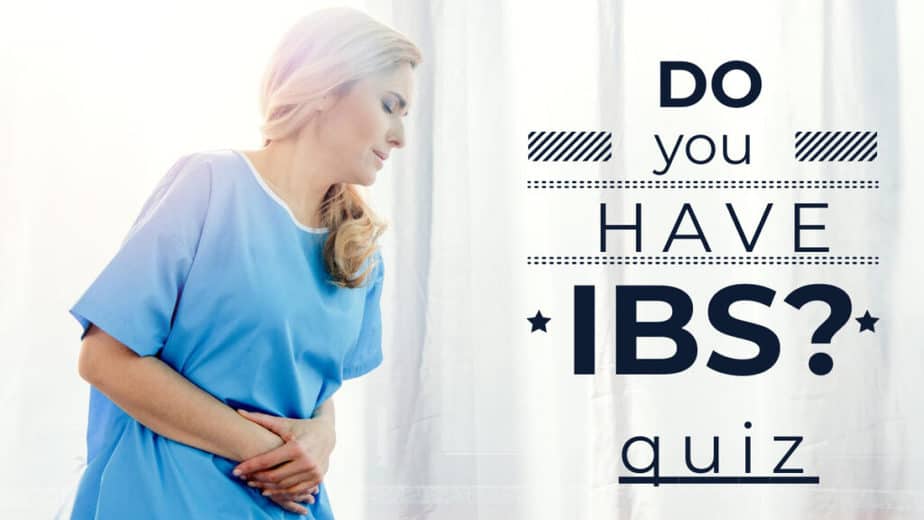Oatmeal, a staple breakfast food for many, is often praised for its nutritional benefits and heart-healthy properties. But when navigating the complex terrain of Irritable Bowel Syndrome (IBS), does oatmeal stand as a friend or a potential trigger?
If you suffer from IBS or irritable bowel syndrome, you’ll know how hard it is to deal with the symptoms. Bloating, constipation and abdominal pain are only a few of the symptoms that can occur, making it hard to get on with your day to day life.
You may have heard that you can control IBS by changing your diet. Some people have sworn that oatmeal has helped improve their IBS symptoms, but others have said that it makes them worse.
So, is oatmeal good for IBS? We’ll go through the reasons why IBS sufferers should or shouldn’t eat oatmeal, and some other ways you can ease some of the side effects.
This article dives deep into the relationship between oatmeal and IBS, shedding light on its potential benefits and the considerations one should keep in mind.
What is IBS?
IBS is a condition that affects the bowels, which are a part of your digestive system, responsible for creating, storing, and eliminating stool. People with IBS can have cramps, constipation, bloating, gas, and diarrhea. IBS doesn’t look the same on everyone though.
Everyone’s body is different, so depending on a few factors, people can have different symptoms.
It’s not known exactly why IBS happens, but may be related to alterations in the gut microbiome (the normal bacteria that live in the gut) as well as a change in the brain-gut interaction.
It often occurs when food moves too slow or too fast through the intestines. This can cause symptoms like constipation or diarrhea.
Specific foods, stress levels, and hormones may play a role in IBS. Some people have found success in identifying trigger foods and avoiding them.
- Related article: Why Do I Keep Getting Constipated?
How Does Fiber Affect IBS?
Adding fiber to a diet can help some IBS sufferers with their symptoms. Fiber can make stool softer, which makes it easier for it to pass through the system.
However, fiber isn’t the answer for everyone. A lot of fiber can also increase bloating or gas.
If you want to see if fiber works for you, start by increasing the fiber content of your diet. You want your body to get used to these foods.
Rapidly increasing the amount of fiber in your diet can cause painful gas and bloating.
- Related article: How Much Fiber for IBS
What is a Low FODMAP diet?
If you suffer from IBS, you may have heard about a diet approach called the low FODMAP diet. FODMAP stands for fermentable oligosaccharides, disaccharides, monosaccharides, and polyols.
In a nutshell, these are sugars that the intestines find difficult to absorb. Some high FODMAP foods include soft cheese, asparagus, and bread. A low FODMAP diet has lower amounts of these sugars.
Many IBS sufferers who try the Low FODMAP Diet see their symptoms improve. A low FODMAP plan could help you find out what your individual trigger foods are. If you’re considering trying the diet, remember that it can be tricky to cut out all high FODMAP foods.
Eliminating foods for a short period of time (2-4 weeks) and then slowly reintroducing foods is recommended when trying a low FODMAP diet. It is not intended for long term use, since it is very restrictive.
Is Oatmeal Good For IBS?
Oatmeal is naturally low FODMAP and a good source of fiber, as one cup contains about 4g of soluble fiber. Soluble fiber can add bulk to stools, making them pass easily through the bowels.
If you suffer from IBS, you may see success in adding oats to your diet.
Is Oatmeal low FODMAP?
While oatmeal is naturally low in FODMAPs, it’s essential to be discerning about its preparation and consumption. Oats are low FODMAP, but not all brands and preparations are the same.
Flavored oatmeals or those prepared with lactose-containing milk can be higher in FODMAPs.
Flavored oatmeal and milk containing lactose are higher in FODMAP. If you suffer from IBS, buy plain oats, and only use lactose-free milk or water when preparing.
To add a touch of sweetness without triggering symptoms, consider natural sweeteners like maple syrup instead of buying sweetened brands.
Why Does Oatmeal Produce IBS Symptoms?
IBS symptoms depend on many factors, so a low FODMAP diet is only one way of reducing your symptoms. Oatmeal is low FODMAP and high in fiber, but it could be triggering for two reasons.
The first is that oats contain resistant starches. The second reason is the amount of fiber in oatmeal. Resistant starches are like they sound, resistant to decay.
Rather than breaking down in the small intestine, bacteria in the large intestine break the starches down instead. This causes gas and bloating.
If you’d like to continue eating oatmeal, remember to always cook your oats. Cooking oatmeal will help break down some of the resistant starch that it contains.
Gradually increasing the amount of oatmeal in your diet may help reduce symptoms of too much fiber too quickly.
How Much Oatmeal Can I Eat With IBS?
IBS is different from person to person, so there isn’t a specific amount of oatmeal that is safe to eat.
One portion of oats is half a cup or 40-50g. Start with one or half a portion each day.
From there, slowly increase the amount you consume and monitor your symptoms. If you develop worsening IBS symptoms, you may need to cut back or stop eating oatmeal.
Can IBS Flare Up Due To Stress?
Food is only one way that affects your IBS symptoms. Stress can be a huge factor too. Strong negative emotions, like feeling tense, anxious, or frustrated can cause colon spasms.
The colon has lots of nerves that are connected to the brain. These nerves are responsible for managing the contractions of the colon. These contractions can hurt, causing stomach pains when you are stressed.
Most people have experienced GI distress when they are under pressure. However, IBS sufferers can find that their colon overreacts even when only slightly stressed.
- Related article Where is the Colon Located
If stress is one of your triggers, it can be helpful to try to relax. Meditation, light stretching, yoga, and light exercise, like walking, can all help your body wind down. Practice one of these activities once a day and see if it makes a difference.
If you have a busy lifestyle, it might help to simplify other areas of your life. Try removing complicated recipes from your diet, and eat blander, easy-to-cook foods.
IBS sufferers may find it helpful to track their symptoms and emotions in a journal. Just writing a few minutes each day can help you focus, relieve anxiety, and rest easier. Tracking your emotions can also help you identify triggers.
Oatmeal, with its rich nutritional profile, offers numerous health benefits. However, for IBS sufferers, the journey with oatmeal requires a bit of navigation.
While its fiber content can be beneficial, factors like resistant starches and preparation methods play a pivotal role in how it’s tolerated.
It’s essential to approach oatmeal with an informed perspective, understanding its potential benefits and pitfalls. By doing so, one can enjoy this wholesome grain while keeping IBS symptoms at bay.
Related articles on IBS:



